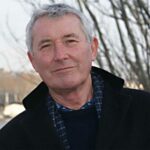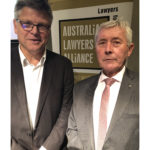High Court Delays Collaery Decision as Government Seeks Further Secrecy

The High Court was set to deliberate last week upon whether the full transcript of the 2021 ACT Court of Appeal case Collaery versus The Queen (No 2) could be made publicly available, as federal attorney general Michaela Cash has sought its suppression on national security grounds.
The ACT appeals court determined last October that six identified matters in the Commonwealth prosecution case against barrister Bernard Collaery should be made available as the risk of damaging public confidence in the justice system far outweighed any risk posed to national security.
Collaery is charged with conspiracy to reveal classified information, under section 39 of the Intelligence Services Act 2001 (Cth), for his part in revealing that the Australian government secretly bugged the East Timorese cabinet offices in 2004 to gain the upper hand in resource negotiations.
In mid-2018, when then attorney general Christian Porter greenlighted the Collaery prosecution, the chief lawmaker further slapped a never-before-used national security order upon his case and that of co-accused Witness K in order to hide the details to be divulged from the public and the press.
But when Collaery, a former ACT attorney general, successfully challenged the gag order on key matters, current attorney general Michaela Cash demanded further secrecy stipulations be applied to the case, which has led the High Court to put off its ruling until this new matter is resolved.
Kafka’s the trial
The enhanced secrecy evidence that Cash began seeking to be applied to the case just a month after Collaery was victorious in lifting the complete gag-order, is known as “court-only evidence”.
This supposedly has such national security sensitivity about it that it can only be sighted and considered by the prosecution and the judiciary, but not Collaery or his legal team.
ACT Supreme Court Justice David Mossop ruled last month that such court-only evidence can be submitted, on the proviso that a government-paid special counsel be appointed to view and examine it on behalf of the defendant and his lawyers.
But, as reported by the ABC, federal solicitor general Stephen Donaghue told the three High Court justices presiding over the appeal on 13 April that the government considered the national security risk posed by the evidence so great that even a specially appointed counsel shouldn’t view it.
Donaghue further put forth that if the full ACT Court of Appeal transcript from last October was released it could have implications for the court-only evidence.
So, the High Court ordered that the case be set aside until the capital territory courts can finally resolve the current secrecy dilemma.
A political prosecution
Witness K was the ASIS agent placed in charge of the secret bugging operation of the East Timorese government offices. When he went to the Inspector General of Intelligence and Security in 2008 over a workplace dispute, he was told to consult ASIS-approved lawyer Bernard Collaery about it.
Following their communications, Collaery determined the East Timor spying operation was illegal under ACT law.
And in 2013, as Witness K was about to testify before the Permanent Court of Arbitration in the Hague about the matter, with Collaery representing East Timor, ASIO and the AFP raided both men’s Canberra premises.
Then attorney general George Brandis didn’t move to prosecute either K or Collaery at the time. But when Porter took over the role of chief lawmaker in late 2017, he soon gave the Commonwealth Director of Public Prosecutions the go-ahead to lay charges against the pair.
Witness K has since pleaded guilty and received a suspended sentence. But Collaery is determinedly fighting on.
So, the moral of the ongoing saga is that the NSW Liberal Nationals government prosecutes those who expose government crimes, rather than those within its ranks who commit them. And the Coalition also knows how to bide its time in settling old scores.







